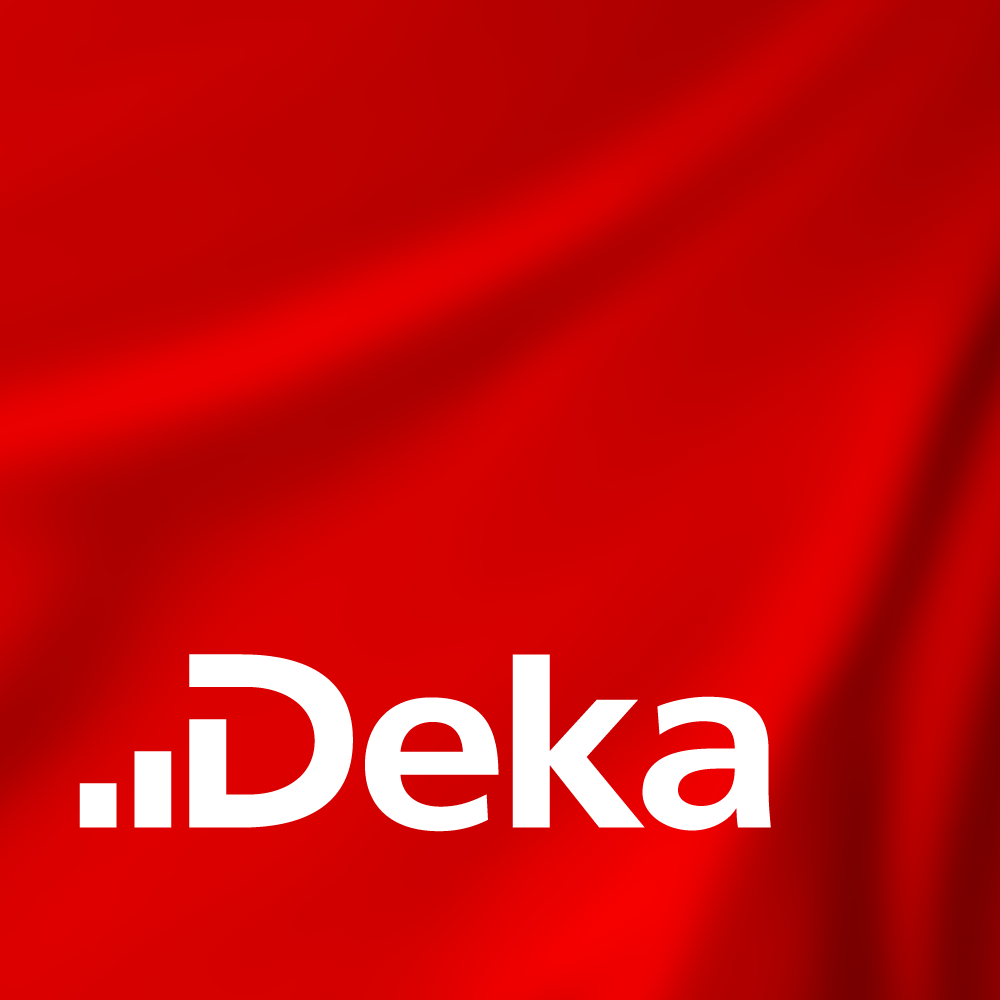
Our history
How the Deutsche Girozentrale (DGZ) became one of the largest investment services providers in Germany – the Deka Group.
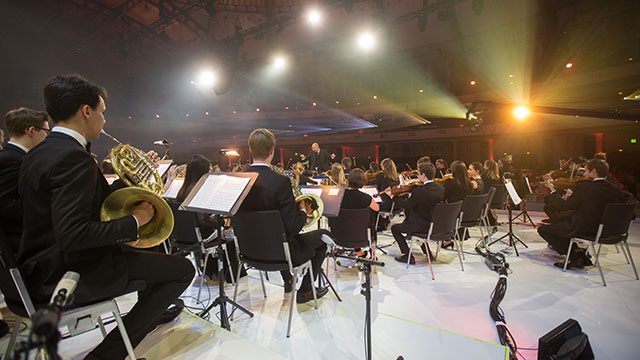
Concert of the Federal Youth Orchestra at the company’s anniversary
The Deka Group celebrated its 100th anniversary in 2018.
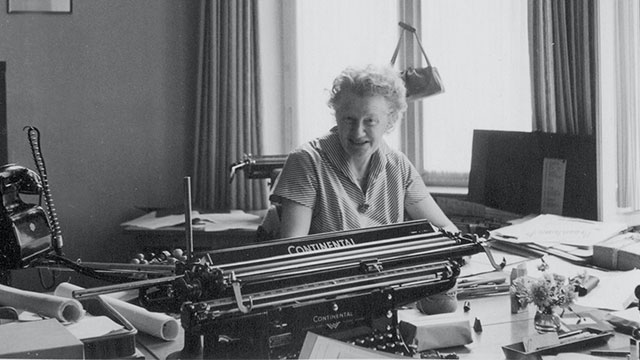
Our financial institution in the economic miracle
Well equipped with a typewriter and telephone: a DGZ employee in the 1950s.
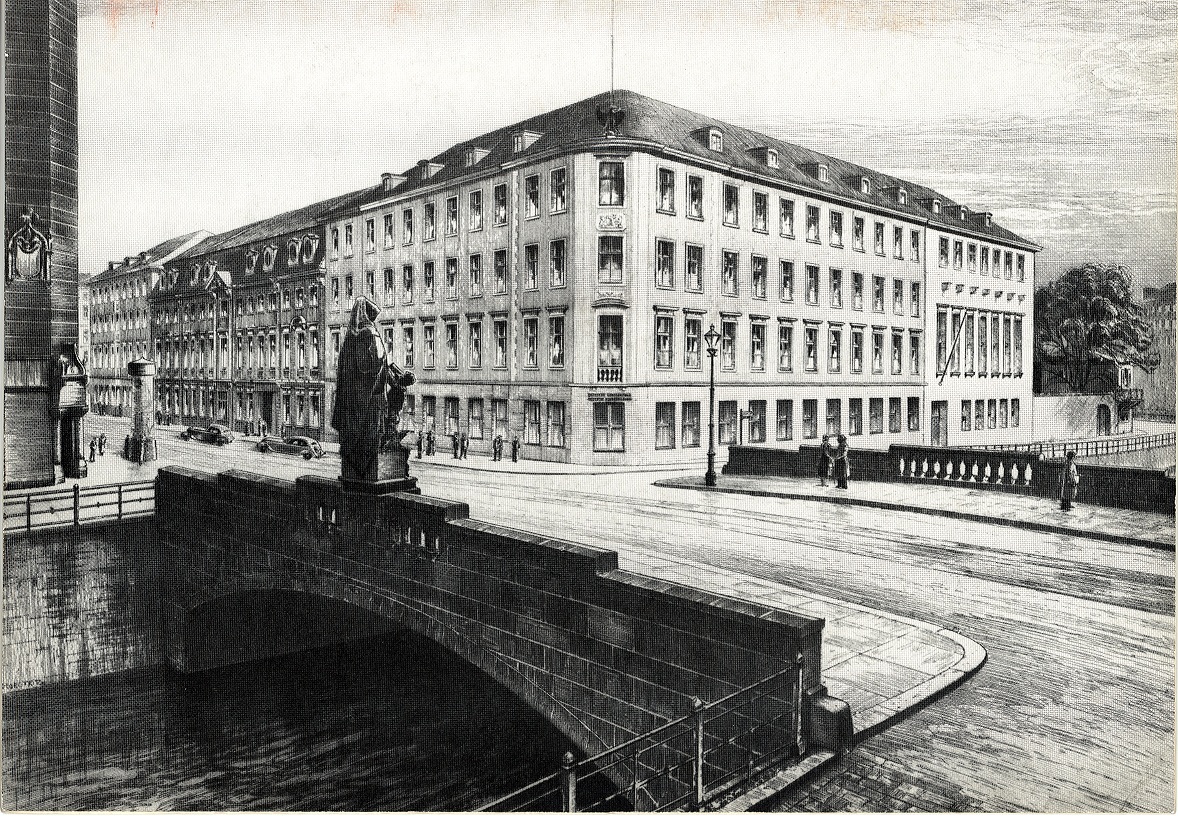
Where it all began...
Deka’s predecessor was founded in Berlin.
1918 - 1949 in the Deka chronicle
The year we were founded
and it promotes cashless payment transactions between the Sparkasse banks and giro centres (Girozentralen).
DGZ becomes a public banking institution
New branch in Frankfurt am Main
Additional function: Central institution for municipalities
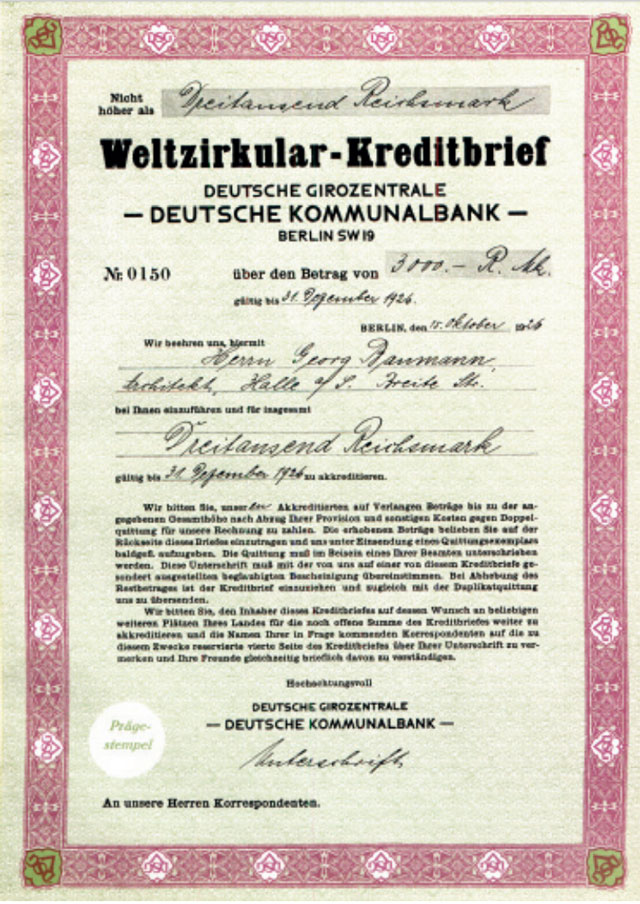
DGZ “Weltzirkular” letter of credit from 1926
DSGV and other responsibilities
DGZ becomes legally independent
Deutsche Sparkassen- und Giroverband (DSGV) continues to bear unlimited liability.
Political restrictions on municipal lending
DGZ in the Soviet sector
New office in West Berlin
A “transferred financial institution”
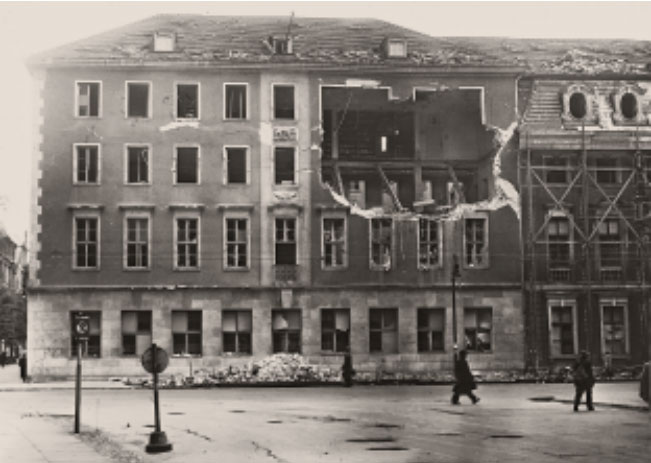
The DGZ building in Berlin was destroyed in the Second World War.
1950 - 1989 in the Deka chronicle
Active in Düsseldorf again
Formation of Deka Deutsche Kapitalanlagegesellschaft mbH
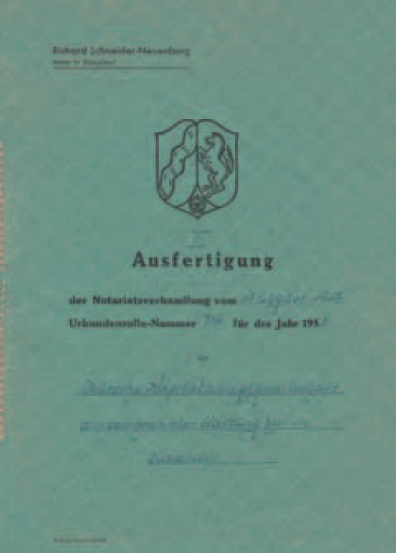
Deka formation document
17 August 1956
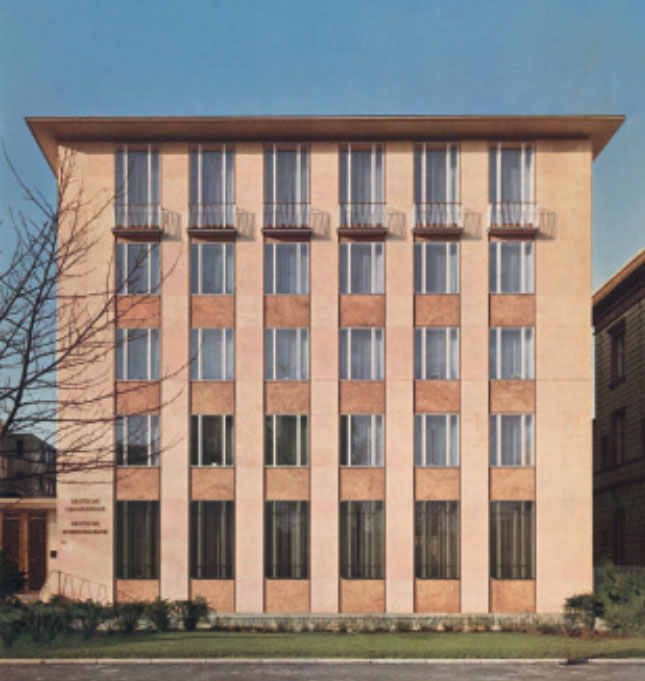
Move to Frankfurt
DGZ moves to its new headquarters to Taunusanlage 10, Frankfurt am Main in 1965.
Deka and DGZ move to Frankfurt
New line of business for real estate funds
Start in the European market
Hello Luxembourg!
New subsidiary
1990 - 1999 in the Deka chronicle
Movement to the new federal states of Germany
Another subsidiary in Luxembourg
Investment funds for institutions
Deka in Switzerland and formation of Deka GmbH
New structure and new names
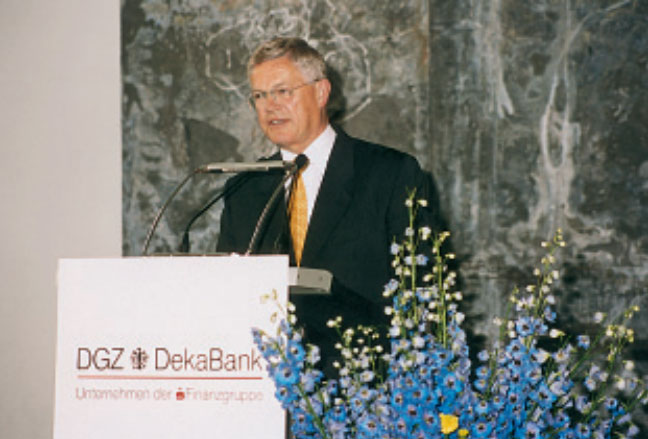
Ernst-Otto Sandvoß
1971 to 1975 Member of the Board of Management, 1975 to 1999 Chairman of the Board of Management of DGZ and first Chairman of the Board of Management of the merged company DGZ/DekaBank.
Major merger
2000 - 2009 in the Deka chronicle
A new name for a new century: DekaBank Deutsche Girozentrale
Interest in WestInvest increased
DekaBank adds exchange traded funds (ETFs) to its range of products
First environmental report
2010 - today in the Deka chronicle
Deka becomes more sustainable
Some structural changes also take place. Starting 8 June 2011, the German savings banks become the sole owners of DekaBank.
Transformation on the agenda
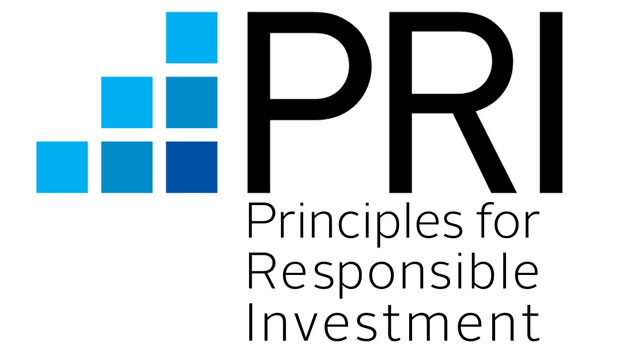
UN Principles for Responsible Investment (PRI)
Deka signs the PRI in 2012, thereby recognising the special importance of sustainability factors
New markets and strong principles
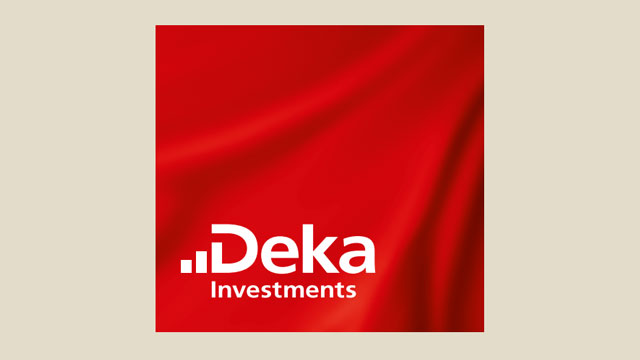
The new “Deka Investments” logo
Deka pools its products and services in the securities business under the new Deka Investments umbrella brand in 2014
The new “Deka Investments” brand
Deka enters the digital business
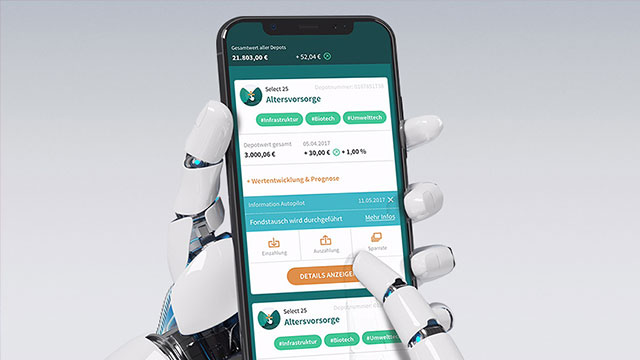
Robo-Advisor bevestor
Digital asset management
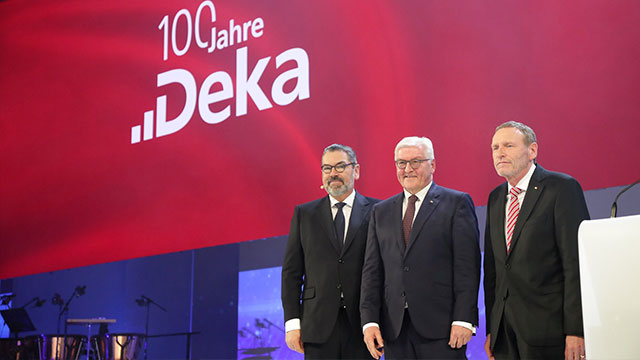
100th anniversary celebration
President of Germany Frank-Walter Steinmeier, President of the German Savings Bank and Clearing Association (DSGV) Helmut Schleweis and former Deka CEO Michael Rüdiger